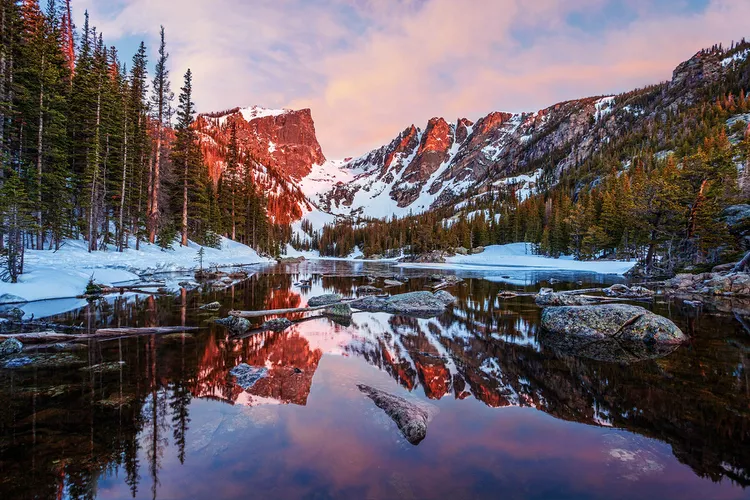Summary
A queer adventure writer shares the challenges he’s faced while traveling, and how he’s learned to handle them.
A bus dropped me off in Colorado’s Rocky Mountains so I could embark on a three-day hike — the Fjällräven Classic — with a group of hikers I’d never met. As an openly gay married man, I’m often the only member of the LGBTQIA+ community in the places I travel. I’m the outsider. However, on this trip, there was more at stake. I knew I had to rely on my fellow travelers and put my faith in complete strangers. Once I stepped off the bus, I immediately looked for clues to answer a pressing question: am I safe out here with these people?
As I readied my pack and started walking the dusty trail, I recalled the previous night’s meet-and-greet — and it gave me pause. I spoke to a British photographer and we got chummy over our adventurous lifestyles and shared history of serving in the military. When I casually mentioned my husband, our conversation abruptly halted. “Oh, I’m not gay,” he told me. “I’m very straight.” His defensive tone made it sound like he thought I was hitting on him, and it felt as if he needed everyone around us to hear his response.
Moments like these are unfortunately common for me. Over the course of my travels, I’ve learned how to navigate these tricky situations while on the road. Here are four tips on how I make my travels easier and, more importantly, safer.
1. Research a destination’s social attitudes before a trip
What I disclose about my private life depends on where I’m going. I knew to keep things to myself when traveling deep into the communist landscape of Cuba or when I was in Brunei as a sailor with the U.S. Navy. (Brunei, at the time, punished gay people with the death penalty, so my silence was essential.)
Knowing local laws is crucial. Always do a quick search to make sure you have up-to-date information. Bali, for example, recently banned premarital sex. While the Indonesian province claims the rules won’t apply to tourists, it’s still important context to understand the landscape and its common social customs.
2. Remember that no one’s entitled to your personal information
On my honeymoon in Norway, my husband and I spent a day surfing in the Arctic Circle. One night at dinner, we met a local woman and wanted to buy her a drink. She went on to ask us uncomfortable and pointed questions about our personal life. As the questions got more intense, we politely made an excuse to pay our bill and leave. Living openly doesn’t mean we have to tell strangers all of our business. For queer people, a big part of travel is deciding just how open to be. Just remember: you don’t owe anyone an explanation about who you are.

3. Free yourself from the burden of educating people
When you decide to be open with strangers, you can unintentionally be a part of their learning process. Therefore, it’s important to recognize that many people may not have queer folks in their circles, so I cannot expect everyone to understand my experiences.
I was once at the New Orleans Jazz Festival with a boyfriend, and we hit it off with a straight couple. When the woman found out we were gay, she exclaimed, “I love the gays! Gay men are my spirit animal. We should go shopping!” Although I could have pointed out the stereotypical nature of her comment or expressed that I’m not particularly interested in shopping, I chose to let it go; I understood her intentions were good, and I didn’t want to take on the task of teaching while on vacation.
4. Tune other travelers out when you need to
As queer people, our mere presence can raise questions. It’s crucial to know you can live your life with or without anyone’s approval. Consequently, the focus should always be on your own comfort and safety.
Last summer, I went camping in Washington’s North Cascades National Park with my husband. We set up camp by Ross Lake next to other groups. Our relationship was clear to everyone in the area since we were the only men sharing the same tent, and some people were not OK with it. However, as long as no one bothered us, it didn’t matter what others thought.

My adventures as an “outsider” have turned out well for me so far, and I encourage others who feel like outsiders to get out into the world. When you do, prepare the best you can, establish boundaries when necessary, and never forget that adventure is for queer people, too.





